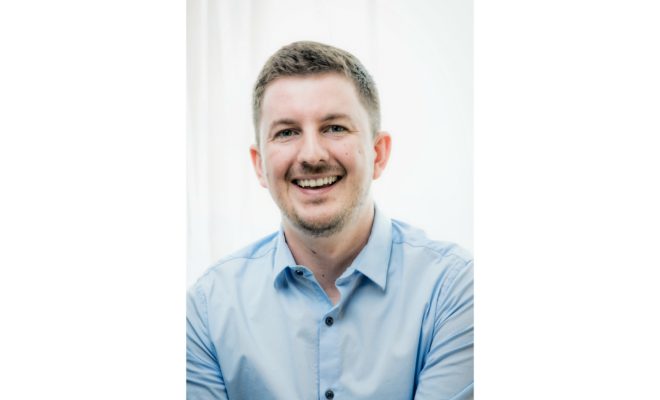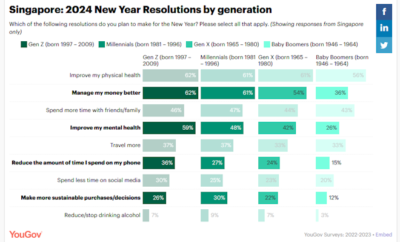
Insights + interviews
In Conversation With Dr Shawn Watson On Cognitive Decline
We interview Neuroscientist and Chief Executive Officer at Senescence Life Sciences, Dr. Shawn Watson, and got him to shed light on brain health and age-related cognitive decline.
Do you find yourself becoming more forgetful as you age? Do you fear the potential prospect of dementia in later life? With so many conflicting possibilities pointing at either genetics or prevention, cognitive decline is certainly a complex matter that presents itself with many misconceptions.
To better understand the topic on brain health and cognitive decline, we speak with Dr. Shawn Watson (SW), a Neuroscientist and Chief Executive Officer at Senescence Life Sciences – a company founded on the belief that ageing is reversible. Having experienced firsthand the devastating effects of dementia, Dr. Watson dedicated his research to uncovering a new approach towards preventing age-related cognitive decline. With his knowledge and background in Neurophysiology, we got Dr. Shawn to debunk some of the common misconceptions about cognitive decline as well as share some prevention tips.
AA: Firstly, could you tell us more about cognitive decline – what are some common symptoms and health conditions associated with it?
SW: There are two major forms of cognitive decline associated with brain ageing. The first occurs during ‘natural’ or ‘non-pathological’ aging which, generally speaking, means a gradual decrease in cognitive function over time but no cell death within the brain. This process starts in our early 20s with psychological signs becoming evident in our early 40s. This results in varying levels of decreased mental agility, processing speeds, ability to multi-task, learn and recall information. It is important to remember that this decline is natural and does not necessarily mean that you are suffering from dementia or a life-threatening condition. While the effects of natural ageing are apparent and can affect certain aspects of our lives, it is the development of pathological conditions that is the most worrisome.
The second form, called pathological (diseased) ageing implies that your brain cells are dying. Cell death is a critical difference as, generally speaking, once a brain cell dies, chances are that it will never come back. Pathological aging includes Dementias such as Alzheimer’s or Parkinson’s disease. These conditions can drastically impact every aspect of our life and are still un-treatable.
AA: Is there a specific group of people who are more susceptible to cognitive decline?
SW: Cognitive decline is a natural part of ageing and we will all experience a gradual reduction in our ability to focus, multitask and learn new skills. However, the rate of decline varies from individual to individual. Unfortunately, there are no conclusive medical reasons as to why some people seem to be more susceptible to cognitive decline than others.
What we do know, is that there are some specific genetic markers and lifestyle choices that can contribute to or have been associated with this differing rate of cognitive decline in individuals. Specifically, there is a growing body of evidence suggesting that certain health conditions and/or lifestyle choices are strongly correlated with developing Dementia. These include, but are by no means limited to, diabetes, head injuries, exercise, obesity and smoking. Health conditions, such as dementia, can be genetic and hereditary, however, the ‘inheritance pattern’ varies and is not consistent with everyone. This means that following a healthy lifestyle and taking proactive measures to support a healthy brain is still the best defence today.
AA: What are the most common misconceptions about cognitive decline and how would you address them?
SW:
1. Brain ageing is only a problem for the elderly
When I speak to people about brain ageing, many immediately assume that I’m speaking about someone in their 70s or 80s. The fact is that we should be thinking about our brain health as early as 20 years old – when our brains start to slow down.
In addition, many researchers believe that pathological conditions such as Alzheimer’s may develop 10 to 20 years before we notice any obvious psychological symptoms (like learning and memory impairment). As such, it is important for everyone to take a proactive approach in maintaining their brain health at an earlier age. Studies have shown that regular exercise and a healthy diet can help to slow down brain ageing and other chronic conditions.
2. Genetics determine outcome
“My mom had dementia, which means I will as well”. Some people seem resigned to the fact that they will get dementia just because their relatives had it.
In reality, there are few clear genetic markers that can predict dementia with a level of certainty. While there are some genes that have been correlated to an increased risk of certain diseases, genetics have so far been a poor predictor of an ageing brain’s health. While genetics are important, never assume that there is nothing you can do to impact your life and health.
3. Cognitive decline is inevitable
Another common misconception is that brain decline is inevitable. I’m personally always surprised by this, as most people believe that they can impact all other aspects of their health – be it their heart, bones or even hair loss – but not their brains. The brain, while incredibly unique, is still an organ that can be impacted by our lifestyle and daily decisions.
Our brain cells (neurons) are arguably the most robust cells in our body, and as for the most part, they can last through our entire lifetime. While many people focus on ingesting anti-oxidants, in reality, our neurons already have an incredible natural defence system with regards to oxidation. With the growing number of failed clinical trials looking into anti-oxidants and brain ageing, many researchers (including our company), are looking to find ways to support a neuron’s natural defence system, rather than providing synthetic anti-oxidants. To date, this strategy is one of only a few that has successfully reversed brain ageing within the lab.
Taken together, current research suggests that brain ageing may in fact be a reversible process – or at least a process that can be manipulated. This is incredibly encouraging and I’m excited that our company is at the forefront of this research.
AA: As we age, many of us may be concerned about symptoms such as poor memory, forgetfulness, or becoming less sharp in our thought processes. Is there a way to improve these symptoms or prevent them from worsening?
SW: Currently, the best thing for your ageing brain – like many other aspects of life – is a healthy diet and an active lifestyle. Many companies and research institutes around the world are however, looking to find other means to impact brain health. There have been many exciting discoveries and developments over the past few years in this area, including the work we are doing at our company, Senescence Life Sciences.
One particularly exciting area of development are targeted health supplements designed specifically for the aging brain. Supplements are gaining popularity within the medical and research communities as they offer a unique means to provide on-going support for the aging brain. Unfortunately, many products on the market have unrealistic claims with no scientific backing or in the worst case, are poorly manufactured and may actually cause harm. So, while health supplements look to be an exciting means to combat brain aging, be careful about who you are buying your products from and make sure to do your research.
AA: When should we start seeking medical attention for our brain health – what are some signs we can look out for?
SW: There is a difference between natural aging and pathological conditions that are commonly associated with Dementias. It is difficult, however, to separate natural forms from pathological conditions within the brain. In general, if you think you, or someone close to you, is suffering from cognitive impairment, speak to your local physician.
AA: What are some tips you would recommend to help improve our brain health as we age?
SW: Many people will commit to exercise, specific diets and taking certain supplements to improve various aspects of their health, but neglect their brain. The brain needs just as much attention as the heart, lungs, bones and muscles! Fortunately, many of the same activities that help support the rest of the body also help to maintain optimal brain health.
If you are looking to do more, our first product, REVIVE has been designed in consultation with some of the world’s leading neuroscientists to optimize and support your brain’s natural repair mechanisms in combating the effects of cognitive decline.
Lastly, if you have any questions or concerns about your brain health, be sure to get in touch with your local physician.









